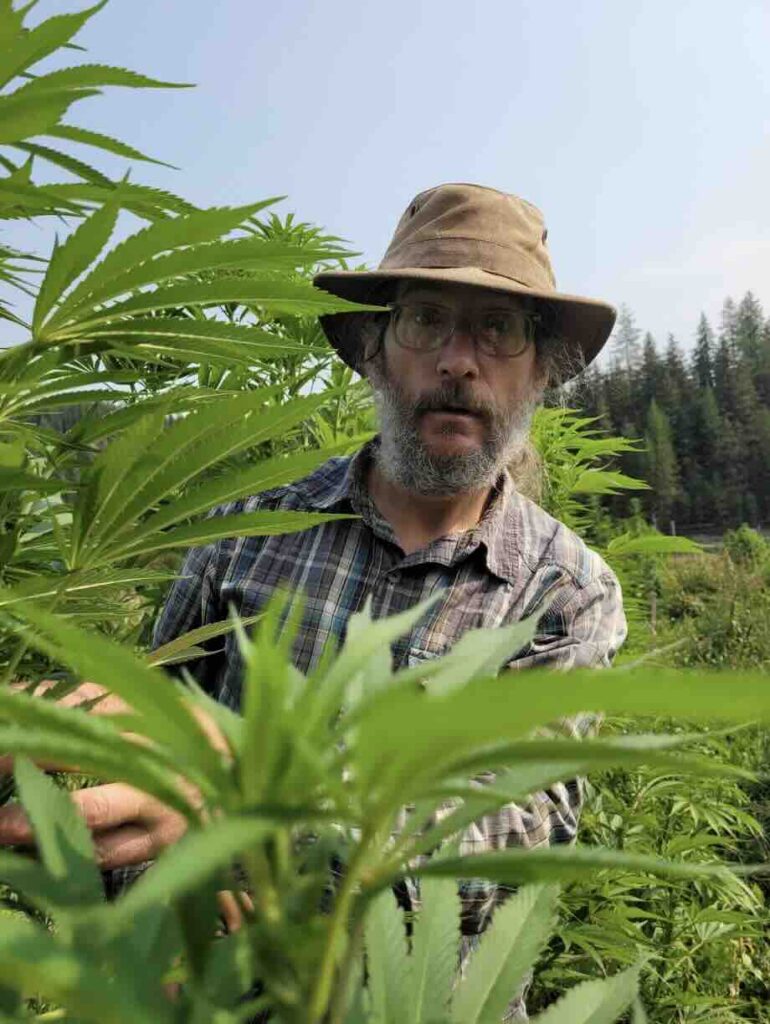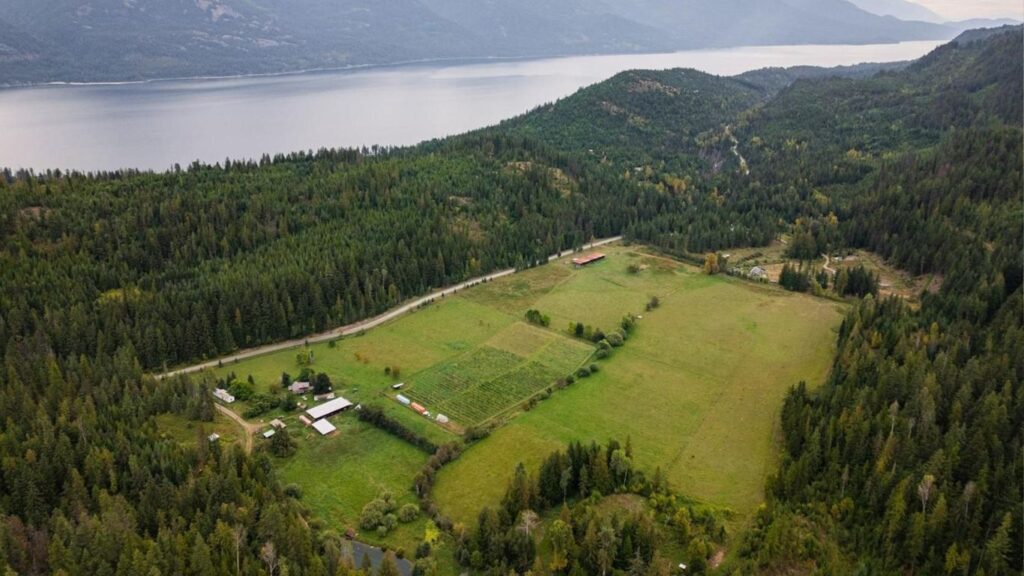One man’s journey to grow the cheapest cannabis in Canada
Todd Veri has been working with, and adjacent to, cannabis in BC’s Kootenay region going back decades.
When legalization lumbered its way into Canada, like many in his walk of life, he decided to take a crack at getting a federal license to grow cannabis on outdoor farms in the region.
What began as a co-op with two different farms (with plans for more) has been pared down over the years through layers of regulations and business and interpersonal challenges into a one-person operation on a small farm about one hour north of Nelson, BC.

Among the goats and cows and the hay he feeds them, Todd Veri grows four acres of cannabis varieties at Cedar Bug Farms, as he’s done there for several years. Now, after more than five years of trying, learning, and adapting, Veri says he hopes this will finally be his year to bring a crop fully to market.
“This year was all about trying to put the pieces together that worked. We had a lot of challenges in previous years, but I also learned a lot along the way.”
One of those lessons was not to over-build and to see how the plants respond to being left more to their own devices. In the first few years, the farms had multiple employees working all season long to plant, weed, tend, and harvest. This year, Veri has done most of this work on his own. And that has meant learning to let a lot go.
“Weeds were a big part of it. I learned to let a lot of the wild plants just grow, which created a more beneficial micro-ecosystem that seemed to support itself, rather than spending a lot of time and money weeding and mowing.”
This move alone meant he could handle on his own what would have been handled by a team of ten in the first few years. He says that keeping costs down was always part of the plan, which is one of the reasons he chose outdoor production.
“We chose outdoor because I saw the drive to the bottom in terms of prices. The amount of overproduction was predictable. I still see outdoor as the best way to deliver something of high quality and value for people to smoke.”
Though, over the years, the entire process has taken its toll on Veri and the farm. Not only did the co-op model unravel in the first few years, but he now needs to sell the farm to cover the ongoing expenses he’s incurred to get to this point.

Despite these challenges and obstacles, Veri is one of the more optimistic people in the industry. He says he prefers to own and learn from his mistakes rather than focusing on the things he cannot change or finding external situations to blame.
“It’s been very hard. Having to sell the land I’ve been growing on is hard. But I have to stay positive, and that perspective is why I think this is still a viable business. Every year, I’ve learned what to do right and what not to do next time.
“My hope is to find someone who will buy the farm and I can continue to operate it for them, so this year’s harvest will be what I hope will prove that model.”
Veri has about one-third of his field planted this year and expects 50-80kg to be ready for sale in the coming months.
His dream has been to sell into the BC market as an outdoor, BC-grown product, but he’s also exploring other options, including the export market. Finding a market for outdoor product in Canada can be difficult, he says, but he believes that growing at a lower cost than indoor, and with a better terpene profile from the natural light, will win over consumers who may be more accustomed to indoor product.
“BC has a long history of great outdoor cannabis, especially in the Kootenays. We need a way to bring that to the legal market.”



